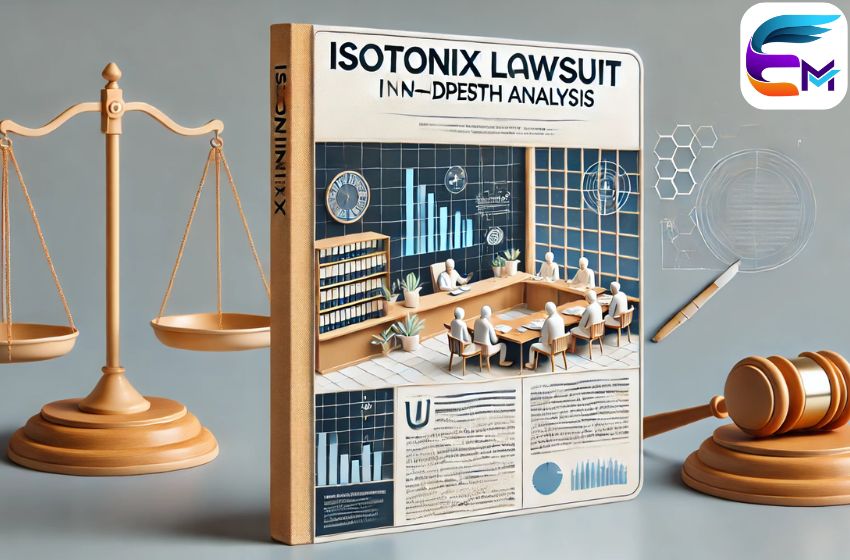The Isotonix lawsuit has been a significant point of discussion within the health supplement industry. This controversy involves Market America, the parent company of Isotonix, and has raised numerous legal and ethical questions about the company’s business practices. The primary issues revolve around false advertising, pyramid scheme allegations, and FDA warnings, which have collectively impacted the brand’s reputation and consumer trust.
False Advertising Claims
Misleading Health Benefits
One of the central points of the Isotonix lawsuit is the accusation of false advertising. Market America has been criticized for making exaggerated claims about the health benefits and absorption rates of their Isotonix products. Plaintiffs argue that the company overstated the efficacy of their supplements, claiming benefits that were not sufficiently backed by scientific evidence. These claims include improved immune function, increased energy, and overall better health, which have been challenged by both consumers and competitors.
Scientific Scrutiny
The scientific scrutiny of Isotonix products has been intense. While the isotonic delivery system theoretically enhances nutrient absorption, independent research has not consistently supported Market America’s specific claims. Experts in nutrition and health have provided mixed reviews, emphasizing the need for more robust evidence to substantiate the advertised benefits of these supplements.
Pyramid Scheme Allegations
Business Model Under Fire
Another significant aspect of the Isotonix lawsuit involves allegations that Market America operates as a pyramid scheme. The lawsuits claim that the company’s business model focuses more on recruiting new distributors rather than selling products directly to consumers. This recruitment-based approach is typical of pyramid schemes, where financial benefits accrue primarily to those at the top of the hierarchy.
Financial Realities for Distributors
The lawsuit highlights that a large percentage of Market America’s distributors end up losing money, as the emphasis on recruitment overshadows actual product sales. Distributors are often required to pay substantial start-up fees and ongoing monthly contributions, which primarily benefit higher-level members. This structure has led to significant financial losses for many individuals, raising serious concerns about the ethicality and sustainability of Market America’s business practices.
FDA Warning Letters
Labeling and Safety Issues
In addition to false advertising and pyramid scheme allegations, Market America has faced scrutiny from the FDA. In 2020, the FDA issued a warning letter to the company for mislabeling Isotonix products. The agency found discrepancies in serving sizes, ingredient listings, and the inclusion of non-approved substances in some products. These labeling issues have raised questions about the safety and reliability of Isotonix supplements.
Regulatory Oversight
The FDA’s involvement underscores the importance of regulatory oversight in the dietary supplement industry. Ensuring accurate labeling and adherence to safety standards is crucial for protecting consumers. The warning letters issued to Market America highlight the need for stringent regulatory measures to prevent misleading practices and ensure product safety.
Impact on Consumers and the Supplement Industry
Consumer Trust and Safety
The legal challenges surrounding the Isotonix lawsuit have significantly impacted consumer trust. The allegations of false advertising, pyramid scheme operations, and FDA warnings have made consumers wary of the brand. Ensuring transparency and integrity in marketing and business practices is essential to regain consumer confidence.
Broader Industry Implications
The Isotonix lawsuit has broader implications for the dietary supplement industry. It serves as a reminder of the importance of ethical business practices and regulatory compliance. As consumers become more health-conscious, the demand for trustworthy and effective supplements grows. This lawsuit underscores the need for companies to prioritize consumer safety and accurate product representations.
The Reaction of Market America
Denial of Allegations
Market America has consistently denied the allegations made in the Isotonix lawsuit. The company defends its business model and marketing practices, claiming that its operations provide real value to both distributors and consumers. Market America portrays its recruitment strategies as beneficial and innovative, arguing that they create new opportunities within traditional markets.
Ongoing Legal Battles
Despite their defense, the legal battles are ongoing. The outcomes of these lawsuits will likely have a profound impact on Market America’s future. If the court finds the company guilty of operating a pyramid scheme or making false advertising claims, Market America could face substantial financial penalties and be forced to overhaul its business practices.
Conclusion
The Future of Isotonix and Market America
The Isotonix lawsuit highlights the complexities and challenges within the dietary supplement industry. For Market America, the stakes are high. The company’s ability to navigate these legal challenges and prove the legitimacy of its business practices will determine its future. For consumers, this lawsuit serves as a reminder to be vigilant and informed about the supplements they choose.
Importance of Regulatory Compliance
The ongoing legal scrutiny emphasizes the importance of regulatory compliance and ethical business practices. Companies in the dietary supplement industry must prioritize transparency, safety, and accuracy in their marketing and product formulations to maintain consumer trust and avoid legal pitfalls.
Empire Magazines Perspective
At Empire Magazines, we believe in the importance of transparency and accountability in the health supplement industry. The Isotonix lawsuit is a significant case that sheds light on the need for rigorous standards and ethical practices. As consumers, staying informed and cautious about the products we use is crucial for our health and well-being.
The Isotonix lawsuit serves as a critical reminder of the complexities and responsibilities that come with producing and marketing dietary supplements. Ensuring consumer safety and trust should always be the top priority for any company in this industry.

